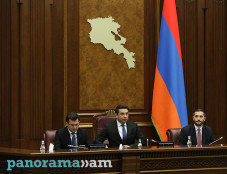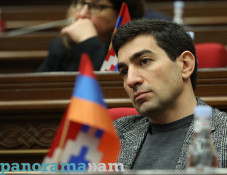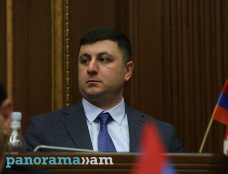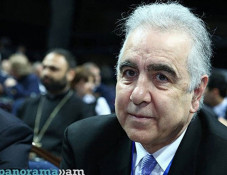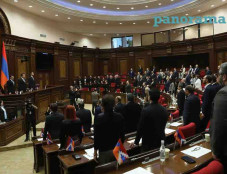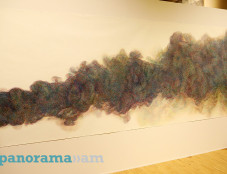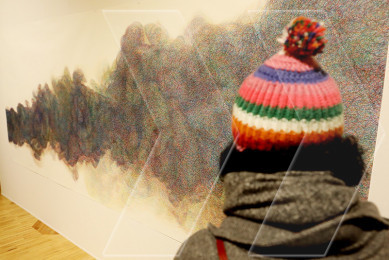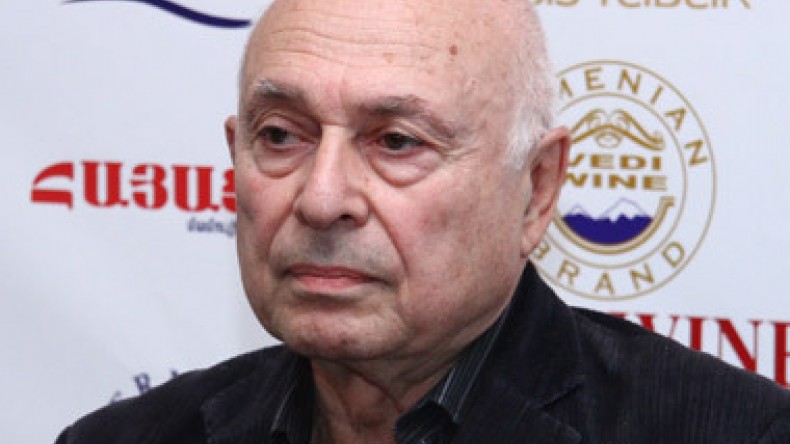
Rouben Galichian on how Azerbaijan falsifies history
Panorama.am presents an interview with Rouben Galichian, the author of “The Invention of History” and a number of other cartographic and historical books in which he has exposed the historical falsifications of Azerbaijanis. Galichian speaks about the falsifications of history currently practiced by Azerbaijani scholars who publish books against Armenia and present a falsified version of history to the world.
False theses commonly promoted by Azerbaijani revisionist historians
The overall goal the Azerbaijanis pursue by falsifying history is to “prove” that the Azerbaijanis inhabited the region before the Armenians – a claim which blatantly contradicts the internationally accepted historical facts. In his books Galichian cites original, international and Azerbaijani historical sources as well as ancient maps that run contrary to these assertions. Here are a number of examples of these theses.
• The Azerbaijani scholars claim that the Armenians never lived in the South Caucasus and that they were supposedly brought there by the Russians in 1828
However, there is a bulk of internationally recognized literature that contradicts this. All the travellers who travelled to that area from the 11th and 12th centuries until the 19th century, among them Iranian and Arab travellers, write about the Armenians, Armenian towns, villages and Armenian churches in the area. Among the original sources that prove the Armenians were indigenous people in the area Galichian cites not only European and Greco-roman historians but also historians who lived in Baku, Azerbaijan and who were raised there (among them for instance Bakikhanov, the founder of Azerbaijani historiography).
• They claim that Azerbaijan has had an independent government for 2000 years.
However, Galichian reminds that Azerbaijan as a country was born in 1918 and that in old maps drawn by any cartographer there is no Azerbaijan North of the Arax River. There existed the Iranian province of Azerbaijan for 2000 years, which was always a part of Iran and its population were Arians and until the 16th century they spoke Pahlavi Iranian dialect and not Turkish. Prior to 1918 in all the international maps the area North of the Arax River was called Caucasian Albania (Arran in Arabic, Aghvank in Armenian) and Shirvan. Armenia was portrayed on both sides of the Arax River (North and South). In 1918 when that area gained independence the Musavat ruling party chose the name of the neighbouring Iranian province Azerbaijan as a name for the new country.
“So until 1918 there were three countries there – Azerbaijan (the Iranian province), Arran, which is today occupied by Azerbaijan, and Armenia. Not only Arab and Islamic cartographers but also Western cartographers and geographers mention this all the time until 1918”, – says Galichian.
There is also the issue of the language in this regard – Turkish language was brought from the Central Asia and it was imposed on the local population, however, the first written text in the Turkish language appeared towards the end of the 19th century. “They claim to be a country with two thousand years of independent history and governance. Then how come they don’t have a written language?” – asks Galichian.
• The Azeris claim that their forefathers were the Caucasian Albanians living in the region (who were Christians and then converted to Islam). They thereby claim that all the historical monuments and churches in the area were built by their forefather Albanians and not by Armenians and thus conclude that they all belong to the Azerbaijanis.
First of all, the Albanians as such did not exist as one unitary people – according to Strabo there were 26 tribes in the area of Albania and a number of these tribes exist till today. However, even if we assume that Caucasian Albanians were one people, then there is a key question that remains unanswered - “the Albanians converted to Islam in the 9th and the 10th century the latest and there was only a small population of non-Muslims living there; but our churches in the area date from the 10th to 17th-18th century; so did the Muslim Albanians build those churches? Who built them?”- asks Galichian. Thus there is a contradiction in terms.
• According to another version that aims to justify the existence of Azeris in this geographical area, the forefathers of Azerbaijanis were Oghuz Turks. Furthermore, they claim that the Oghuz Turks originated in Central Asia and moved to Caucasus five thousand years ago (and not five hundred years ago) and therefore they were supposedly local people living in the Caucasus.
“This is a complete lie, everybody knows when the Turkish tribes started moving in – the 7th -8th century, and massively they moved in during the 8th and 9th century and until the 14th-15th century they were not organized as one nation”, - says Galichian.
Thus the Azerbaijani scholars are not consistent and often contradict themselves when it comes to their ancestors. “Whenever it is suitable (when they want to emphasise their kinship with Turkic people), they say they are the followers of Oghuz Turks from Central Asia. In other occasions, when there is a contradiction with Armenians and they want to claim that they were historically in this territory, they say they are the heirs of the Caucasian Albanians” – says Galichian.
Galichian also mentions the armenophobic nature of the historical books printed in Azerbaijan. He highlights the fact that in the school history books the Armenians are called “those in black, who occupy our country and destroy our people”.
Techniques employed by the Azeri scholars to falsify history
Further, Galichian dwells on the techniques commonly used by Azerbaijani scholars to falsify historical facts and distort original sources.
• One of the most commonly used techniques is the arbitrary translation of original historical sources during which they either simply remove any reference to Armenia in the original or change it into something else.
One such example is the history of Karabakh written by Mirza Qarabaghi in 1840s. This book was translated into Russian characters in 1959 which was a correct translation; however later in 1986 it was revised and any name or sentence related to Armenia was either removed from it or changed. Armenian historian Movses Kalankatvatsi for instance became “Moisey Kalankatlı Turkish or Azerbaijani historian” and in the sentence where he gathers an army of 10,000 people to free Armenia, ‘Armenia’ is changed into ‘Albania’, as if he was an Albanian who wanted to free Albania and not Armenia! Another example is Bakikhanov’s book called Golestan-e Eram, which is transliterated into Turkish – the name Armenian is removed and the word ‘Armenia’ is mostly replaced by ‘Albania’. There are multiple such examples in Galichian’s books.
The fact that there was no written Turkish language prior to the end of the 19th century and that all the primary sources had to be translated into modern Turkish –Azerbaijani has become a good tool in their hands, says Galichian. “Whatever was written in the past was in Persian language and now they have to retranslate and transliterate those texts into modern Turkish– Azerbaijani language, which until 1929 was in Arabic characters, in 1929 was converted into Latin, in 1939 into Russian (Cyrillic) and in 1990s back to Latin again. Now, the people today who read Azerbaijani history read the Latin characters, they don’t know what is written in the Persian language (in Farsi)”, – explains Galichian and at the same time encourages the Azerbaijanis who know Persian to go and check out the historical books in the National Academy of Azerbaijan written in Farsi and compare them with their modern translations to see the falsifications for themselves.
Galichian also notes that the original sources and their correct translations do exist – original texts in Farsi for instance have been printed in Iran. Also, many European authors have translated those books into English and into other European languages. However, any new book contains these falsifications. These new books considerably overwhelm in number the books with authentic translation; they are made attractive to the reader, particularly to young scholars and students as they are printed in glossy covers, translated into various languages and freely distributed to libraries and think tanks all over the world.
• These books published in Azerbaijan also contain completely made-up information, names of non-existent authors as well as references to non-existent sources.
Galichian brings the example of a book called “Monuments of Western Azerbaijan” (by Western Azerbaijan they refer to present-day Armenia) which claims that all the historical monuments in the territory of Armenia, even the Urartian monuments before Christianity are Turkish! The book contains completely false information, which is simply made up (it for instance claims that supposedly there are Turkish inscriptions on Armenian churches). This book is written by certain Ăziz Ălăkbărli, which is a false name, as no such person exists, ensures Galichian. A number of academicians listed in the book likewise do not exist. While this book was published by the Ministry of Tourism of Azerbaijan!
There is another book written by Mammadova during 1980s. In the book it says the authors have made extensive references on the Albanian literature, however among 400 referenced sources there is not a single Albanian source, as no such sources actually exist, says Galichian.
Galichian mentions also that the Azerbaijanis have learned many of these techniques from the Turks who also present a distorted version of the history in Turkish schoolbooks.
State funding
In Azerbaijan the whole process of producing and spreading revisionist history is dictated and funded by the state. Millions of dollars are spent by the government of Azerbaijan, mostly through Heidar Aliyev Foundation, on publishing revisionist books and disseminating them worldwide.
Galichian recalls that President Aliyev himself announced in the Parliament in 2005 that he would reward all those scholars who would write books “proving” that the Armenians did not live in this area and that they are not indigenous people. Two years ago Aliyev publicly thanked all the scientists who had followed his instructions and produced these books. So these books are ordered and these scholars are paid for writing a specific version of history.
The Azerbaijani government also bribes foreign scholars to spread the Azerbaijani propaganda and to silence their criticism of Azerbaijani falsifications – cases, which Galichian has encountered personally.
Reasons and goals
Galichian explains that the reasons and roots of these policies pursued by Azerbaijan are to be sought in the Communist period. According to Stalin’s decree all the Republics were supposed to have their own history and culture. And since Azerbaijan was a new country with a new name, they were supposed to somehow appropriate to themselves the history and the culture existing in the area, and this is what they have been doing ever since. Galichian notes that even though the country was called the Republic of Azerbaijan in 1918-1920, the actual population of that country called themselves Turks and Tatars until 1936 and it required another decree from Stalin to change their name into ‘Azerbaijani’.
By resorting to the falsification of history Azerbaijan accomplishes political goals. For instance when the Soviet Union occupied Azerbaijan in 1920, they could have changed the name Azerbaijan to its original name – Shirvan, but they kept it because they wanted to use it against Iran as a political tool, which they did in 1947 trying to connect Iranian Azerbaijan to the Soviet Republic of Azerbaijan but didn’t succeed. This is the power game of the ruling elite and they continued it since independence; “Since petro dollars arrived they continued it with more zeal and greater force”, - says Galichian. There is also the factor of Pan-Turkism (the idea of having Turkish-speaking nations from Asia Minor through Caucasus to Central Asia) which is rampant in Azerbaijan. It is in the interests of Pan-Turkists to have strong Azerbaijan and to unite with Turkey, and Armenia is a big thorn standing in their way.
According to Galichian, they do it also because their existence as Azerbaijanis per se is threatened if they say they are a conglomeration of different peoples. “The United States of America consists of many nations and they are proud of each of their heritages; Azerbaijanis consist of many races and tribes but they are not proud of the individual history or culture of each tribe; they say these all belong to one country, one people – Azerbaijani, which both are false”, - says Galichian.
The renowned historians worldwide are well aware about the historical facts and cannot be deceived by these falsified books; however the concern is with the young generation of scholars and students who should beware of these books lest they fall into the trap of Azerbaijanis and take their falsehood as reality, cautions Galichian.
Rouben Galichian is the author of “The Invention of History: Azerbaijan, Armenia and the Showcasing of Imagination” (2009), “Historic maps of Armenia” (2004), “Countries South of the Caucasus in Medieval Maps” (2007), “Clash of Histories in the South Caucasus: Redrawing the Map of Azerbaijan, Armenia and Iran” (2012) and other books.
Newsfeed
Videos






